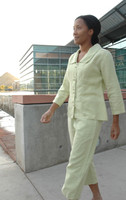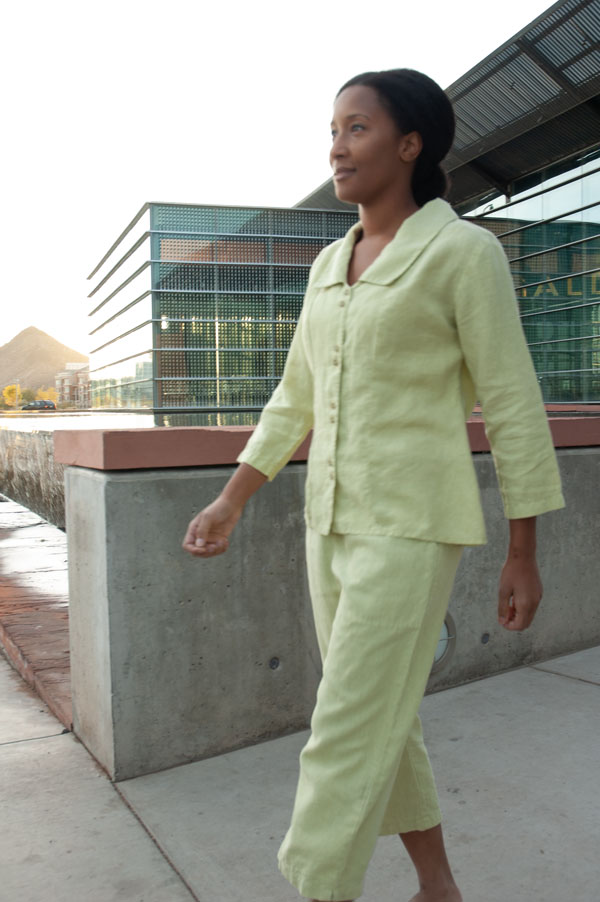It’s about what goes on as well as in your body
Posted by Rose on 22nd May 2015
We seek out and pay a premium for healthy, organic food. But for many consumers, shopping for sustainable clothing is less of a priority.
Feeling comfy and looking fit in our eco-friendly hemp - Tencel Cropped Pants and Princess Top.
In her recent book, Sustainable Luxe: A Guide to Feel-Good Fashion, author Jordan Phillips draws a comparison between our careful, label-reading behavior when it comes to choosing healthy food and the typically more cavalier attitude that accompanies clothes shopping. She notes we’ll go out of our way to visit specialty stores and spend more in order to ensure what we buy is sustainable and healthful when it comes to food and health-related products.
Phillips argues in favor of doing the same thing with apparel shopping. Shop local. Look for apparel makers who are transparent about their materials and methods. Support artistry and craftsmanship with your spending power.
It can take a lot of digging to figure out if clothes being sold as “natural” are truly sustainably made. It also takes personal commitment—sustainable women's wear costs more to purchase. I recently blogged about the factors that contribute to earth-friendly fashions’ higher price tags.
As I note in that post, a cost per-wearing analysis on a well made garment with fad-proof styling is likely be a better buy in the long run than a cheap piece of fast fashion that begins falling apart shortly after you first wash and wear it.
When it comes down to figuring out the actual cost of clothes made cheaply in the developing world, conscious consumers will also factor in the environmental and human costs of these products. Exploitative labor practices, inhumane working conditions, and non-existent environmental protections all contribute to a cost that doesn’t appear on the garment’s price tag.
By opting for clothes that are made from sustainably grown and manufactured fibers and fabrics, you’re casting a vote for a safer and healthier world. The fabrics used in Sympatico’s collection of Tops, Pants, and Skirts are a blend of hemp with Tencel—a fiber produced in a closed-loop system that protects our environment. After Tencel fiber has been produced, the water used in its processing is returned to the environment having been purified in an algae-based system.
The hemp is also highly sustainable as it is primarily grown by small farmers who use no synthetic pesticides or fertilizers. Unlike petrochemical fabrics such as polyester and nylon, hemp biodegrades back into the earth from where it came. But it will be quite a while before your hemp clothing is ready to retire. Thanks to hemp’s incredible durability and Tencel’s silky drape, you’ll enjoy years of free-flowing comfort.
Share:






